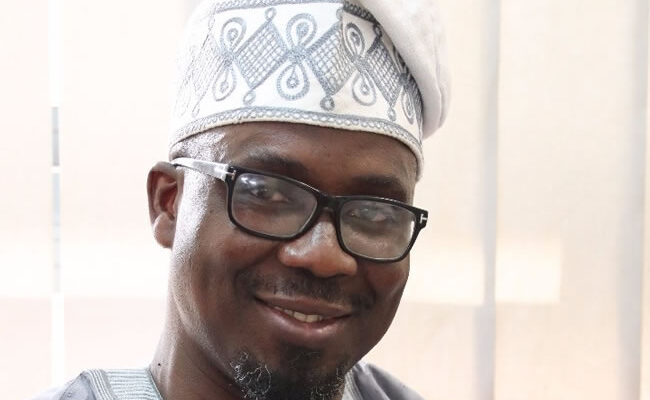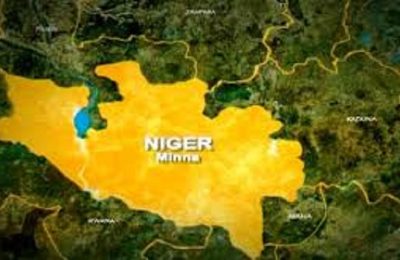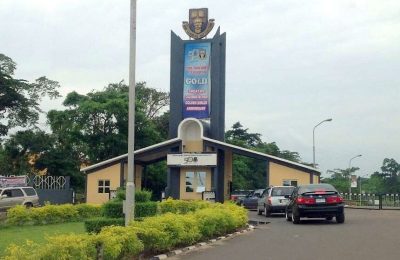Alhaji Yusuph Adebola Olaniyonu, journalist and former Ogun State Commissioner for Information, was the Special Adviser (Media and Publicity) to Dr. Bukola Saraki when he was the Senate President. He shared his life story with TUNDE ADELEKE.
How would you describe your experience as a commissioner and spokesman for a Senate President?

Those two positions presented different contexts and required different approaches. However, they were both demanding in nature, challenging and rigorous. I became commissioner in Ogun State a few weeks after I became an orphan with the sudden loss of my mother, who was not sick, for even an hour. So, I was initially disorganised. However, the job was even more demanding because of how the administration in which I served emerged. The governor, Senator Ibikunle Amosun, defeated the candidates of the ruling party and that of the rival faction of that ruling party against all expectations. It was what somebody described as a ‘hostile takeover’ and many believed the new administration was not going to succeed. The past governor and his successor were also old allies who had fallen out and became enemies. I remember the media handlers of the former administration writing on social media when I took over the Ministry of Information and Strategy that I would soon know that being a good journalist and editor did not make one a good information manager. They were bent on waging a disinformation battle against the new administration.
I am happy that before I left office, many of the leading members of the opposition party knew we did well. I remember a top member of the immediate government saw me at an event and said I was the one who made him and others realise that one does not need to be combative to be an effective commissioner for information. I ended up also becoming, till date, one of the two people to have ever served in that capacity for four full years in my state.
The job of commissioner for information was a challenging one, particularly when you have a hands-on governor like the one I worked with. You also know that politicians only want to see positive news all the time. They are averse to criticism and they do believe any unfavourable write-up must have been sponsored by an opponent. Again, the post of commissioner exposed me to the politics of my state. At a time, I was also the unofficial spokesperson of the ruling party at the critical time the party was joining others to form a mega party, now known as APC. It also allowed me to know the nooks and crannies of the state, many key personalities, and traditional rulers in the state and to reunite with a lot of my old classmates in the primary, secondary schools and tertiary institution.


What about managing Saraki?
My role as Special Adviser to the Senate President was something that was a battle from the beginning. It was a battle for survival everyday; no breathing space. The job, however, gave me good insight into the lawmaking process. I thank my boss, the then Senate President, Dr. Abubakar Bukola Saraki, who gave me and my team frontline roles. The media team served as the think-tank for the Senate. We could influence issues to be discussed for the day at plenary and other ideas that the Senate would embark on. God bless Dr. Saraki. He wanted a Senate that would do something extraordinary in the service of the people and would be brimming with new ideas and initiatives. He would always ask us to come out with new ideas and he is a man of ideas, a master strategist himself. He was always bringing ideas and challenging us to bring new ideas. The only problem was that one could not have time for himself during that period. It was such a busy and traumatic time. One gained a rich experience about Nigeria. I met many people from across the country and became aware of how broad and diversified the conflicting interests in the country are. The Senate is a mini-Nigeria. Every time I look back at that eighth Senate, I see a missed opportunity for the greatness of Nigeria if the Presidency had not insisted that it would frustrate and distance itself from any good idea coming from the legislature. If the Presidency and the eighth National Assembly had worked together, many progressive ideas that would help this country to grow would have emerged, been adopted and implemented. The Senate, particularly, would have been the incubator of ideas, even though the legislature is not supposed to be a policy-making body.
Can you let us into your growing-up years?
I was born in the Mushin area of Lagos where my maternal grandfather had a massive two-storey building that is still standing today. Later, in the tradition of the Egbas which is, as they live in Lagos, they send their children back home, to live with their parents or elderly siblings, I was sent as a young boy to Abeokuta. Two of my half-sisters later joined me. However, we would always spend our holidays in Lagos with our parents. I also had the privilege of spending some of my holidays in Ibadan, Oyo State, with my father’s sisters. My family is a polygamous family, but a peaceful one.
I grew up in a community where every parent was your parent and you could be subjected to disciplinary measures by any parent if you stepped out of line. One of the acts that could get one in trouble then was sneaking out to swim in the Ogun River and because of that, I don’t know how to swim till today, even though my wife could swim better than a fish. Our pastime was playing football. When I got to secondary school, after the first year, the school – Muslim High School – relocated from within town to the outskirts, Isolu Village, which is the present location of the Federal University of Agriculture, Abeokuta. Then, the roads were not as good as they are now. We would trek many kilometres to and from school and also hitch-hike on almost any type of vehicle and truck. There were times we were conveyed into town after school by sand-carrying trucks or lorries, the ones popularly called tippers. From that time, I had this philosophy that when I grow up and own a car, I will give a ride to anybody going my way. Unfortunately, the security situation and lack of trust in the country have frustrated or nullified that philosophy. I only help people from any office where I work and any school that I attend.
Any memorable events of that time?
There is one particular incident that happened to me as a young boy which I can never forget. I narrated the story in an article I wrote and got published on my 50th birthday in 2016. The article was entitled “My Baale Idi Araba Story”. It was the story of how as a young boy living in Abeokuta and on holiday with my parents in Lagos, I missed my way while accompanying my older sisters who were going for evening tutorials. I spent the night in the house of the village head (Baale) of Idi-Araba where LUTH is now located. The following morning, the village head directed a chief to take me to the Police Welfare Department in the Alakara area of Mushin, but on our way, at the bus-stop close to my house, the plastic seat I was carrying to be used at the tutorial fell from the Molue bus and I jumped down to take it. It was at that time the search party that had been combing the entire area all through the night sighted me. Meanwhile, my disappearance created a big crisis between our mothers at home.
Growing up was interesting. I enjoyed a lot of protection from my aunt, my father’s elder sister, who was old enough to be his mother, though they were of the same parentage. My sisters and I were living with her then. I also remember how our extended family members in Abeokuta treated me with reverence because they believed I was a reincarnation of my grandfather, the late Chief Amodu Agboola Olaniyonu who was the Bada of Ikereku. My late uncle till he died in 2002 or thereabout would always hail me with his late father’s cognomen. Also, the oldest surviving member of my family, a 92-year-old woman, still addresses me as “my father” till today.
What about your educational background?
I attended Oke-Ona United Primary School, a school established in 1900 in Ikereku, in part of Abeokuta between 1972 and 1978, then moved to Muslim High School from 1978 to 1983. My set in that school will celebrate our 40th anniversary of graduating this year. From there, I gained admission to the Department of Mass Communication of the then Ogun State Polytechnic, also in Abeokuta in 1983. At that time, the department was the best in the country and had some of the best lecturers in the country. We also had the benefit of the OGBC and OGTV for our training in broadcast journalism. After graduating in 1988 with the Higher National Diploma (HND) as the best student in the department and entering the journalism profession, I was admitted to the University of Ibadan and eventually bagged a Master of Communication Arts (MCA) degree in 1998. In 1999, I enrolled in the Faculty of Law of Lagos State University and graduated with a Bachelor of Law (LL.B – Second Class, Upper Division) degree in 2005. I attended the Nigerian Law School and was called to the Nigerian Bar in 2006. I bagged a Master of Law (LL.M) degree from the University of Lagos in 2010.
Can you take us through your career journey?
Apart from school internships in various broadcast and print organisations, my first post-graduation job after the national service in Police College, Oji River, as a lecturer, was as a reporter-researcher in a very popular weekly human interest magazine known as The Sunday Magazine (TSM). I started the job in December, 1989. The publisher of the magazine was Mrs. (later Senator) Chris Anyanwu. It was the only job in my life that I wrote an application for and went for a series of written and oral interviews to get. In all the other jobs I got in my life, I was head-hunted. The magazine gave me a good start in journalism. After more than four years there, I moved to The Week magazine owned by former Vice-President Atiku Abubakar. While working at The Week magazine, thrice I won the Best Political Reporter of the Year award in the Nigerian Media Merit Awards (NMMA) series (1994 and 1995) and the Diamond Awards for Media Excellence (DAME) (1996 edition). I left TSM as Assistant Editor in 1994 and joined The Week, a news magazine, in the same capacity, but left the latter as Associate Editor. In June 1997, I joined THISDAY Newspapers as Political Editor. I was promoted to Group News Editor in THISDAY in 1999 after I had covered all the events leading to the birth of the present democratic dispensation from beginning to the end and I had enrolled in the Faculty of Law of LASU to study law. I knew there was no way I could combine my law study with the job of Group News Editor in THISDAY then because all the technological aids that now make the job easier were not available then. So, I resigned and joined The Comet newspaper as its pioneer political editor.
But you returned to THISDAY.
In January 2002, I returned to THISDAY as Deputy Editor of the Sunday Newspaper. The management later moved me to become the deputy editor of the daily newspaper and in 2005, a few weeks after resuming at the Nigerian Law School as a student; I was promoted as the Editor of THISDAY on Sunday. Let me say on record that I had earlier voluntarily declined the appointment as Editor of Saturday THISDAY because I believed the responsibilities were going to negatively affect my studies at the Law School. This was while waiting for the Law School session to commence. So, when a few weeks after I resumed at Law School, the post of Sunday Editor became vacant again, I could not let it pass me by. It was like pushing my luck too far. Since I was a student at the polytechnic and I read a book on journalism where it was stated that “just like every soldier carries the baton of a Field Marshal, every reporter dreams to become an editor,” it has been my ambition to become the title editor of a newspaper. I thank the management of THISDAY and the chairman of that highly-rated newspaper, Mr. Nduka Obaigbena, for giving me that opportunity. I served as editor of THISDAY on Sunday for more than five years as perhaps the longest serving editor of the paper. I also served as Chairman of the Editorial Board of the newspaper from where I was appointed Commissioner for Information and Strategy in my state.
It’s pertinent to add that I am still a staff of THIS DAY Group of Newspapers. The management graciously granted me a sabbatical leave all this while and I really hope to return there.
What informed your choice of a spouse and how did you meet?
I married a good-natured woman. She is also somebody who loves children and is a good home manager. She is a very good person, God-fearing, courageous and beautiful. These are some of the qualities I saw and admired in her early in our courtship. I still love her for these attributes. From the beginning, I knew she would hold the home together while I struggled to climb up the ladder in my career. She is also a very polished and cultured lady. I had met her while she was on a visit to a friend’s wife. The lady is like her big sister.
What major pranks did you play as a youth?
This is a tough question to answer. I believe I am still a youth at almost 57 (laughter). As a student, I was a very serious one and was in fact nicknamed ‘Prof’ by my lecturer, Professor Lai Oso. As a professional, I have always been a straight, disciplined person who immersed himself in his job and lived like a good Muslim. On a few occasions, as a bachelor, my friends made me host parties that were meant to either send forth friends relocating from the country or just to get together with our friends who came into town from outside Lagos. Journalism is also a profession that takes 24 hours out of your day and unlike now when everything is easy because of technology, we had to do everything manually then. Thus, then you would leave Agege to go and see a news source in Victoria Island without a prior call to the person on the other end if he was there. The first set of mobile phones which came in the early 90s was a status symbol for a very few rich people in Lagos. So, there was not too much time for playing pranks.
What would you consider as your favourite food?
I can eat any neatly prepared food, though I probably enjoyed beans and dodo more than most other items on the menu. That was until recently when I have been medically advised to slow down on both.
What genre of music do you enjoy listening to?
I like Juju and Fuji music. Late Sikiru Ayinde Barrister remains my evergreen musician. As an Egba man, the Apala music of the late Ayinla Omowura and the Sakara genre of Baba Legba – the late Yusuf Olatunji – still excite me whenever I listen to them. Chief Ebenezer Obey and King Sunny Ade are the two musicians alive whose old works are so much appreciated by me. These were and are musicians whose works are very rich in philosophy, well thought-out, well-composed, full of wisdom, and always relevant, no matter the year they were released.
How do you unwind?
I listened to old music by the artistes I mentioned above. I read a lot of books and articles in newspapers and online platforms, discuss politics and watch Nigerian movies. Sometimes, I visit the cinema to watch movies or live performances in the company of my wife and our children. I enjoy travelling too.
YOU SHOULD NOT MISS THESE HEADLINES FROM NIGERIAN TRIBUNE
May Nigeria never witness another Buhari’s govt — Primate Ayodele
The leader of INRI Evangelical Spiritual Church, Primate Elijah Ayodele has said President Muhammadu Buhari-led Government performed…
‘IDAN’: All you need to know about trending Nigerian street slang
The hashtag ‘Idan’ is the latest Nigerian street slang that has been trending on social media for…
Murphy Afolabi: 7 things you probably don’t know about late Nollywood actor
Nigerian sensational actor and filmmaker, Murphy Afolabi, reportedly died on Sunday, barely 24 hours after…
WEEK BRIEF: 10th NASS’ power tussle, Seun Kuti’s assault on police… other top news
THE ongoing tussle for the principal office positions of the 10th National Assembly by the top members All Progressives Congress (APC) has…
SPOTLIGHT: Dennis Bergkamp, ‘non-flying Dutchman’ blessed with unrivalled skill, technique
Dennis Nicolaas Maria Bergkamp, born on May 10, 1969, in Amsterdam, Netherlands, is widely regarded as one of the…
Ph.D graduation of a Hausa-Yoruba Nigerian in America
Last Saturday, I attended the PhD graduation of a treasured mentee of mine by the name of Abdulbasit Kassim at Rice University in…








